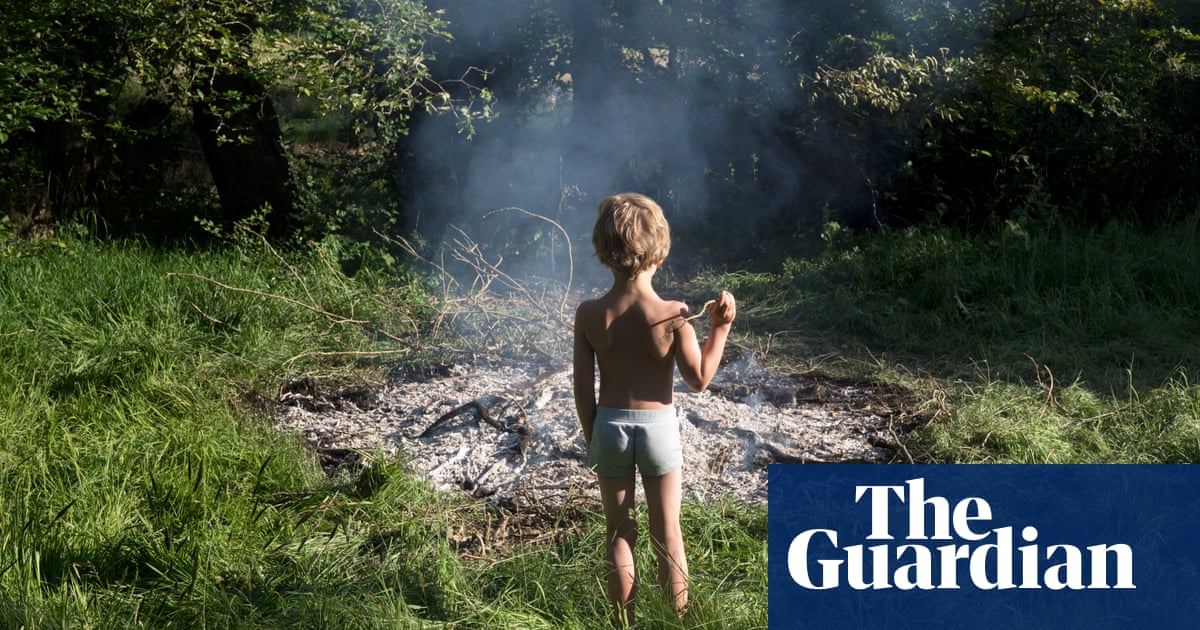
On 24 March, UK allotment holders woke to a different world. Lockdown added new challenges – but also new rewards – to the business of tending their plots.
There was confusion over lockdown rules, shortages of compost and seed, and, in England, a long, hot summer through which to keep watering. Many plot holders were deeply concerned about Covid-19: “Sowing seeds and wondering if you’ll still be around for the harvesting,” as one put it.
But many found new solace, sanctuary and community spirit over the course of the summer. Those working from home found extra time to spend at their plots, while key workers gained particular pleasure from the quiet after exhausting shifts.
Here are just a few of the experiences Guardian readers told us about, to add to the pictures we have already selected from this unique year.
‘Lockdown changed our lives’
Lockdown has changed our lives and the way we operate our community garden. This is my first job in the UK. I love nature and gardening, and I’m sharing my passion and enthusiasm with our local community.
Many local volunteers and I thought this garden was a sanctuary during the lockdown. Suddenly, the community garden became busier than ever before. We started using booking slots to enable all our volunteers to have safe access to the garden. The system has been in operation since April and keeps our project alive. We were able to grow our vegetables as usual. We had a very successful blackcurrant harvest in July. August is our harvest season for potatoes; many residents came to help and shared the harvest with locals in need.
We also use the garden as an outdoor meeting place, and have organised free tai chi classes and a free summer school for local families.
Winnie Hu, gardener and volunteer coordinator at the Justice Prince community garden, Longbenton, North Tyneside
‘Would I be pulled over by the police?’
We all remember the early days of lockdown and the nervousness of what was or was not allowed. Would I be pulled over by the police for cycling too far from my flat, or would I arrive to find chains and padlocks locking the allotment out of bounds?
Luckily, neither of those came to pass. Life behind allotment gates was different. Neighbours mended winter damage to sheds, swapped seeds, and helped one another secure ever-elusive compost.
Colm Fitzgerald, Cecil Avenue allotment, Wembley, north London
‘A gorgeous place to declutter a key worker’s mind’
It has been amazing. A social, but distanced space – a gorgeous space to declutter a key worker’s mind and fill it instead with sweet peas, courgettes and cherries.
Social housing worker, Wallasey, Merseyside
‘My allotment was one of the only places I felt safe’
I have continued to work fulltime through the pandemic as an occupational therapist, visiting people in their own homes after they’ve been discharged from hospital. My allotment was one of the only places I felt safe, especially in the early days of lockdown. I was really scared I would catch the virus and bring it home to my family.
Whenever I got to my allotment, I was able to focus on repetitive tasks and stop worrying about the pandemics and what ifs. I found great comfort in the predictability of nature and the changing seasons. The great wheel was still turning, despite us being in a scary and strange limbo.
Vicky Carruthers, Tempest allotments, Otley, West Yorkshire
‘I got tearful and self-loathing’
As the sun went down, I’d gaze at the lights blinking over the city. Peace. Then the rains came, and with them, the slugs. I came obsessed with killing the little bastards. I got tips from friends, but nothing worked. They were munching through my courgettes, broccoli and lettuce.
I got tearful and self-loathing. Why can’t I be a good gardener? People I knew were struggling with a life-threatening illness and friends’ parents had died, but all I could think about was slugicide. I wondered about counselling.
Then I tore off all the spare wood and the mulch I’d carefully put down earlier. Now the slugs had to cross a deserted landscape to get to their free meal. They were easy pickings for the birds. The plants – and my mental health – started to recover.
Magda Devas, Rosendale allotments, West Norwood, south London
‘The kindness of plot holders has been amazing’
Last year, my father, an avid gardener, was diagnosed with dementia at the age of 70. Since April, he has been in hospital. It has been very hard, but as a family we wanted to keep his allotment up to his standard while he was away.
The kindness of plot holders has been amazing. As a family, we wanted to help our community. We held an allotment donation day, where fellow plot holders could donate surplus produce. We have donated five crates of food to the Blue Flower Cafe, a local dementia support group, which shared the produce with its most vulnerable members, and eight crates to local food banks. .
Sarah Brown, Hartswood allotments, Brentwood, Essex
‘We got our allotment a week after our wedding was cancelled’
A week after lockdown, we were offered an allotment. The previous week, our wedding had been cancelled the night before it was due to take place, when Boris Johnson announced the closure of pubs and restaurants.
We jumped at the chance. We were desperate for something to distract us from the escalating madness. We had no gardening experience and it’s been a steep learning curve, helped along by more experienced plot holders. The allotment has been the silver lining to the big, black cloud that’s been over us.
Stephanie Carr, Beaumont allotments, Newcastle-upon-Tyne












